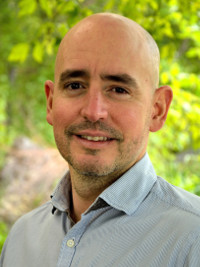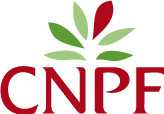National Center for Private Forest Ownership (CNPF - Centre national de la propriété forestière)
CNPF (National Center for Private Forest Ownership) contributes to the development of French forests through advisory and coordination activities, research, training and knowledge dissemination with a wide range of partners (R&D, professionals, education, private forest unions, ...).
As a public body with around 400 employees, CNPF is requested by Ministries at National level in different official appliances (National forest plan especially) to provide expertise on the private forests’ policies, and contribute to their elaboration.
CNPF integrates 10 Regional delegations – (CRPF - Regional Centers for Private Forest Ownership) - that are key actors and arms of Regional forest policies, for all issues concerning private forests management (approving forest management plans for 3 400 000 hectares, grouping of small scale forest management, drawing up the codes of good sylvicultural practices).
CNPF comprises an applied research & development department (IDF - Institute for forestry development), that has developed since those last years a major strand concerning ecosystem services (carbon, water, biodiversity,...), and support decision tools helping owners and managers for adaptation to climate change.
CNPF has also a certified training department that provides a variety of forest-related training sessions on different technical thematics (sylviculture, carbone, biodiversity, etc.).
CNPF has a publishing department with the edition of forest-related books (unique library in France), one national review Forêt & Innovation, and also regional reviews Bois de nos régions).
CNPF also coordinates the AFORCE network for adaptation of forests to climate change, 16 forest institutions belonging to research, development, forest management and educational sectors are involved in. The main target of AFORCE is to create a common place favourable to exchanges and to provide forests managers with practical tools and guides, to help them to make the best management choices.
European and international cooperation at CNPF
Its missions, its history and professional culture, and also the demands of its counterparts and partners, led CNPF to conduct, since its origins, numerous actions of cooperation at the European and international levels.
The ordinance No. 2009-1369 of 6th November 2009 (section 221.1 of the Forest Code) states explicitly that CNPF's mission is to "promote exchanges between agencies involved in forest development in France and in the territory of the European Union and third countries."
To be qualified as a Technical Institute of the ACTA network, the CNPF RDI Department, is requested to have a strong enough European dimension.
CNPF is in contact with the European Forest Institute (EFI) through its ECOFOR membership ; member of the R&D group of the European confederation of forest owners (CEPF) ; member of the national support group of the Forest based sector Technology Platform.
Contact

An internal network at CNPF brings together the European correspondents of all departments who pursue European action at the regional and national level.
Manager Europe International
Benjamin CHAPELET
Tel. : +33 6 64 73 98 29
Email : benjamin.chapelet@cnpf.fr
